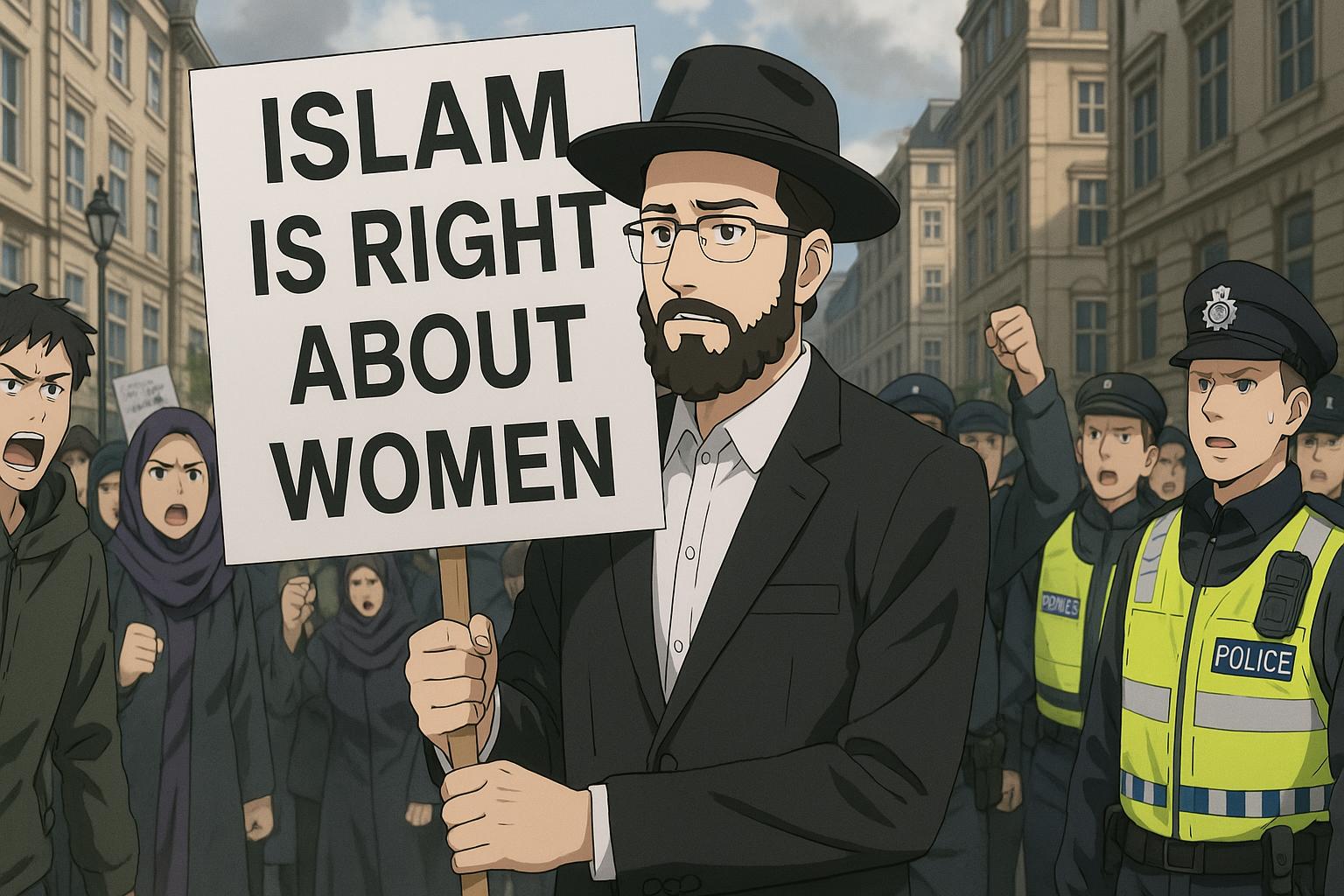A Jewish man has been charged with “racially aggravated harassment” after participating in a counter-demonstration against a pro-Palestine march in Swiss Cottage, north-west London. This incident unfolded on September 20, when he displayed a controversial placard caricaturing Hezbollah leader Hassan Nasrallah. The placard referenced an Israeli military operation—Operation Grim Beeper—known for causing significant casualties among Hezbollah, which is officially classified as a terrorist organisation in the UK.
This event is symptomatic of a broader surge in tensions and protests related to the Israel-Palestine conflict, particularly following the October 2023 attacks that reignited hostilities. The accused expressed astonishment at his charges, questioning the police's ability to differentiate between legitimate political expression and hate speech. He stated, “If there are Hezbollah supporters at these marches, then why weren’t charges brought against them for terrorist offences, rather than me being charged for holding a sign that can only be construed as political satire?”
During police questioning, an officer suggested that his placard might incite further racial hatred towards pro-Hezbollah demonstrators. The protester’s lawyer countered this argument, highlighting that Hezbollah is recognised as a terrorist entity by UK authorities. In a notable development, the Crown Prosecution Service (CPS) later dropped the case, citing insufficient evidence for a realistic prospect of conviction. The Metropolitan Police described this decision as a reflection of the complexities arising from recent events.
The police maintained that their actions were taken with careful consideration of the evidence. A spokesperson admitted that the officer erred in categorising the protesters as “pro-Hezbollah” instead of simply pro-Palestinian. This raises serious concerns about law enforcement’s response to ongoing protests, especially in a climate already fraught with divisions. Since the October attacks, more than 28 arrests have occurred, many tied to expressions of support for proscribed groups like Hezbollah, highlighting the need for rigorous scrutiny of all demonstrations.
The situation in the UK mirrors rising tensions in the US, where incidents of antisemitism have intensified. For instance, Christopher Husary faced charges for an antisemitic hate crime after allegedly threatening a Jewish man in a New York subway in June 2024. Simultaneously, Tarek Bazrouk, a 20-year-old, was charged for attacking Jewish pro-Israel protesters at events, marking a troubling escalation in violence tied to these gatherings.
The recent death of Paul Kessler, a Jewish man in California whose altercation during a demonstration led to legal action against his assailant, further complicates the discourse surrounding such protests. Kessler’s case underscores the fragile balance between political expression and the potential for inciting violence, especially in a society increasingly fractured along ethnic and ideological lines.
As communities grapple with these issues and the implications of political expression versus hate incitement, this latest case in London serves as a critical reminder of the urgent need to uphold free speech while safeguarding against hate crimes. In an era where the lines are increasingly blurred and political agendas can stoke division, it is crucial to critically examine how policies and law enforcement measures are addressing the escalating tensions.
Source: Noah Wire Services
